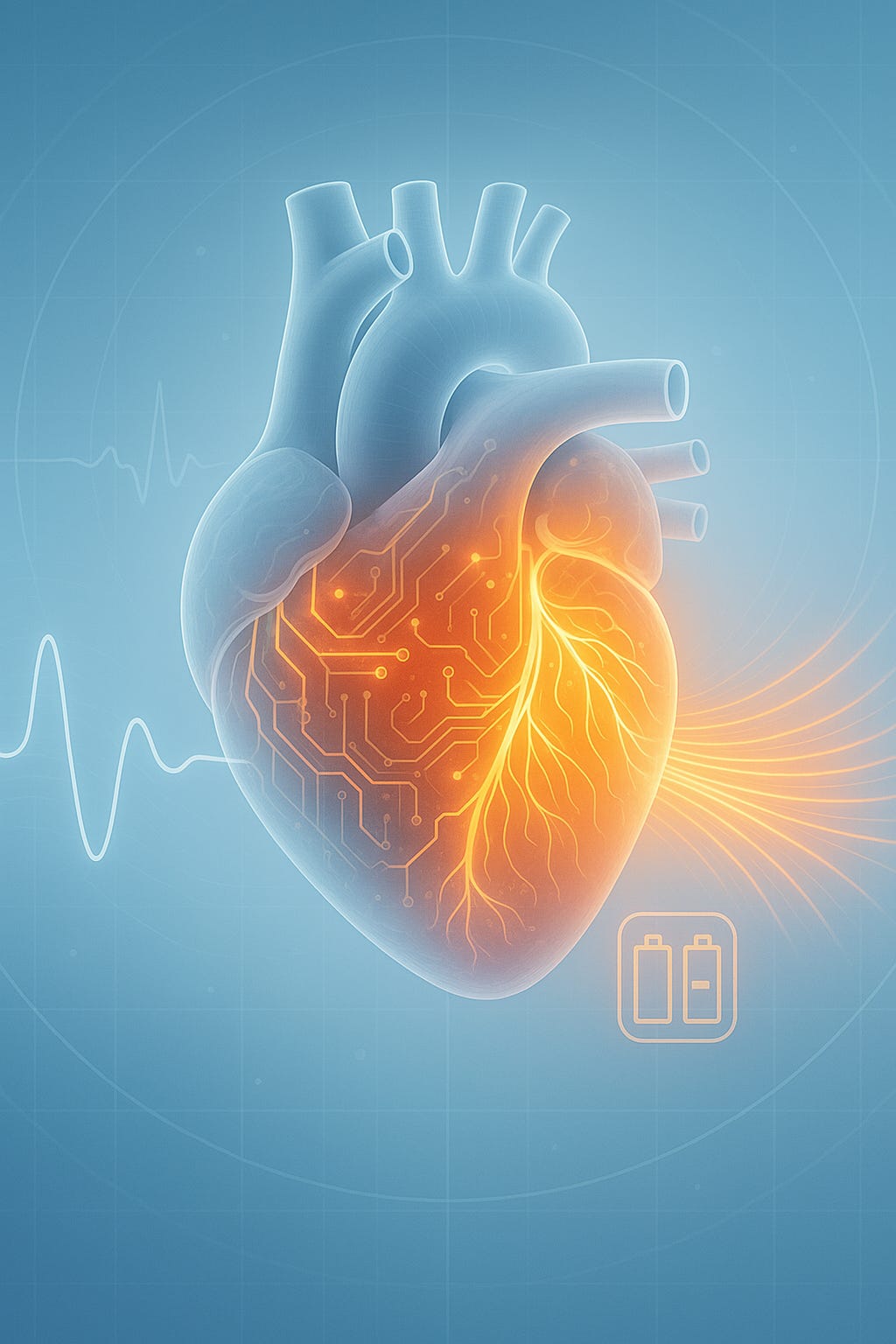Hybrid Device for Heart Failure Shows Early Promise
A new dual-function implant may offer both symptom relief and protection from sudden cardiac death
Early results from the Integra-D trial suggest that a new cardiac contractility modulation-defibrillator (CCM-D) can safely combine two therapies in one device for patients with heart failure with reduced ejection fraction (HFrEF). The device achieved 100% success in defibrillation testing and improved or stabilized symptoms in most patients at six mont…
Keep reading with a 7-day free trial
Subscribe to Just Healthcare to keep reading this post and get 7 days of free access to the full post archives.


